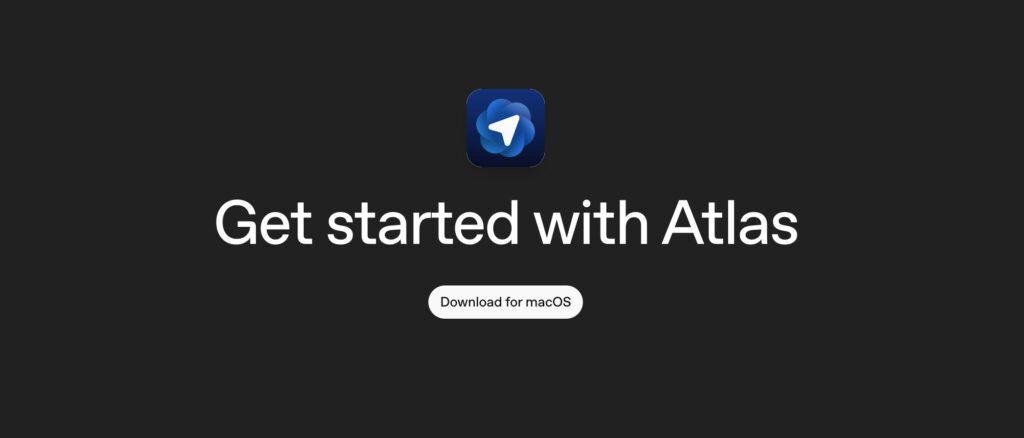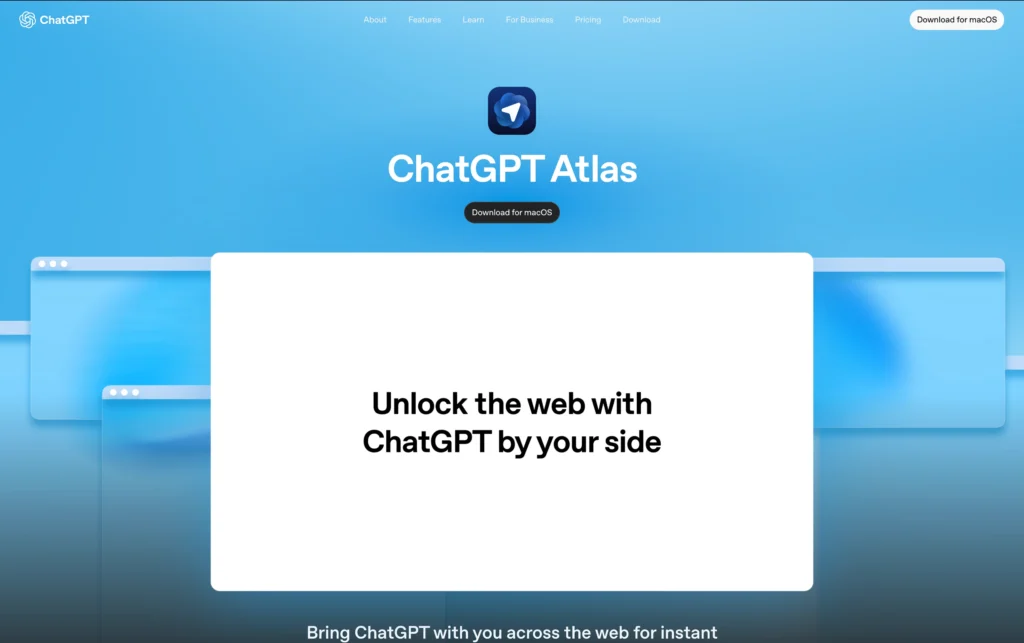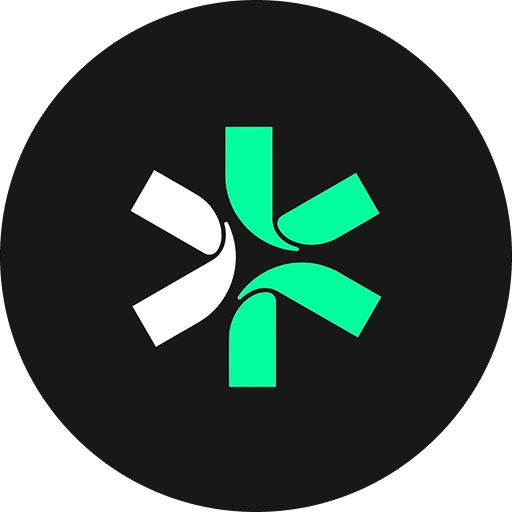
Why OpenAI’s new browser might be the Comet killer we didn’t see coming
Perplexity launched Comet a few months ago and everyone thought they’d cracked the AI browser code. Then OpenAI dropped ChatGPT Atlas on October 21, 2025, and suddenly Comet looks like it brought a knife to a gunfight.
I’m not saying this to be dramatic. The numbers tell the story. Google’s stock dropped 2% when Atlas launched. That’s how seriously the market takes this threat. And if Google is worried, Perplexity should be terrified.
The Timing Couldn’t Be Worse for Perplexity

Perplexity Comet launched with a simple promise: AI-first browsing that serves up curated answers instead of traditional search results. It was innovative. It was fresh. It proved there’s real appetite for AI browsers.
Then OpenAI showed up with 500 million weekly active ChatGPT users and said “hold my beer”.
Atlas doesn’t just compete with Comet. It has advantages Comet can’t match: massive brand recognition, an existing user base larger than most countries’ populations, and partnerships with DoorDash, Instacart, OpenTable, Priceline, StubHub, Thumbtack, and Uber.
Perplexity has… a search engine with a chatbot.
What Atlas Does That Comet Can’t
Here’s where it gets brutal for Comet.
Agent Mode That Actually Works
Comet has agentic capabilities, sure. But a recent SEO professional’s deep dive into Comet found it “falls into the same old AI traps: hallucinations, clumsy relevance, and lazy insights”. The tester concluded: “AI browsers like Comet promise hands-free insight, but insight without verification isn’t insight at all”.
Atlas? It’s built on OpenAI’s Computer-Using Agent model that just set new state-of-the-art benchmarks. On BrowseComp, which specifically tests how well AI can navigate and find information on the web, Atlas scored 68.9%, the highest ever recorded.
That’s not marketing fluff. That’s measurable superiority.
Memory That Learns
Comet remembers your browsing history. Atlas remembers your preferences, your workflow patterns, and how you actually work. Product Lead Adam Fry demonstrated how this creates increasingly personalized experiences that go way beyond what traditional browser history can do.
As someone who builds automation workflows (check out my stuff at khaisa.studio/product), this difference matters. One is a feature. The other is intelligence.
Tools That Choose Themselves
Atlas gives ChatGPT access to multiple tools: visual browser, text browser, terminal access, and direct APIs. The AI picks the most efficient tool for each specific task.
Comet? It basically pokes around websites and hopes for the best. A professional tester noted: “Think of Comet as ChatGPT’s Agent Mode without the guard rails”. That sounds cool until you realize guard rails exist for a reason.
The Verification Problem
This is where Comet really struggles.
That same SEO tester ran Comet through daily tracking tasks and found a critical flaw: “Perplexity didn’t store or display a cached copy of the AI Mode answer for any query, so there is no way to verify what Comet actually saw”.
They concluded: “Given Comet’s track record of making things up or finding shortcuts, neither of these scenarios would surprise me”.
Atlas, meanwhile, has three layers of security safeguards and a confirmation system that asks before taking significant actions. It’s built for reliability, not just speed.
The Ecosystem Advantage
OpenAI partnered with actual services people use daily. When you ask Atlas to book a restaurant, it’s working with OpenTable directly. Order groceries? It’s integrated with Instacart.
Comet has to figure out websites on its own, leading to the kind of failures that SEO tester documented.
The professional verdict? “Absolutely not” when asked if you should adopt AI browsers like Comet for deep work. “It’s proof of concept, not proof of competence”.
That hurts.
Brand Recognition Matters
Here’s the uncomfortable truth for Perplexity: most people haven’t heard of Comet. But everyone knows ChatGPT.
OpenAI has brand recognition that Perplexity spent years trying to build. When Atlas launches on Windows, iOS, and Android soon, it’s walking into an audience of hundreds of millions who already trust the ChatGPT name.
Comet is fighting for attention. Atlas already has it.
The Market Is Choosing
Atlas joins “a growing pack of AI-first browsers including Perplexity’s Comet and The Browser Company’s Dia, but OpenAI’s brand recognition and existing ChatGPT user base give it unique advantages”.
That’s a polite way of saying Comet is about to get buried.
The competitive landscape shifted when Comet launched, proving there’s appetite for AI browsers. But OpenAI’s approach goes further, “integrating the full ChatGPT experience rather than just search”.
It’s not even the same game anymore.
What Comet Got Right
To be fair, Perplexity deserves credit. They proved the concept works. They showed there’s real demand for AI-native browsing. They took the risk when others were still testing.
But proving a concept and dominating a market are very different things.
Comet is “proof of concept, not proof of competence”. Atlas is arriving as the competent version, backed by more resources, better technology, and an existing user base that dwarfs Perplexity’s entire company.
The Brutal Reality
If you’re curious about AI browsers and want to compare, definitely try both. You can check out Comet at dub.sh/khmuhtadin-comet and see what Perplexity built.
Just don’t be surprised when you find yourself switching to Atlas.
The SEO professional who tested Comet extensively concluded: “These tools are demos with ambition, not synthetic experts. Feel the AGI if you must, but keep your hands on the wheel”.
Atlas isn’t perfect either. OpenAI admits it’s early and will make mistakes. But it’s launching with state-of-the-art performance, massive partnerships, security systems that actually work, and an existing user base that makes Comet look like a side project.
What Happens Next
OpenAI is planning to expose their Computer-Using Agent model through APIs so developers can build their own agents. That means the Atlas ecosystem will grow while Comet stays isolated in Perplexity’s walled garden.
The browser war is heating up, and OpenAI just showed up with superior firepower.
For more on AI automation and how these tools actually perform in real workflows, check out my work at khmuhtadin.com. I’ve been testing AI browsers and building automation systems (see khaisa.studio/product), and honestly? Atlas changes the game.
Comet proved AI browsers could work. Atlas is proving they can dominate.
And that’s the difference between being first and being best.
Try both browsers and decide for yourself: Compare Perplexity Comet with ChatGPT Atlas and see which one actually delivers on the AI browsing promise.

